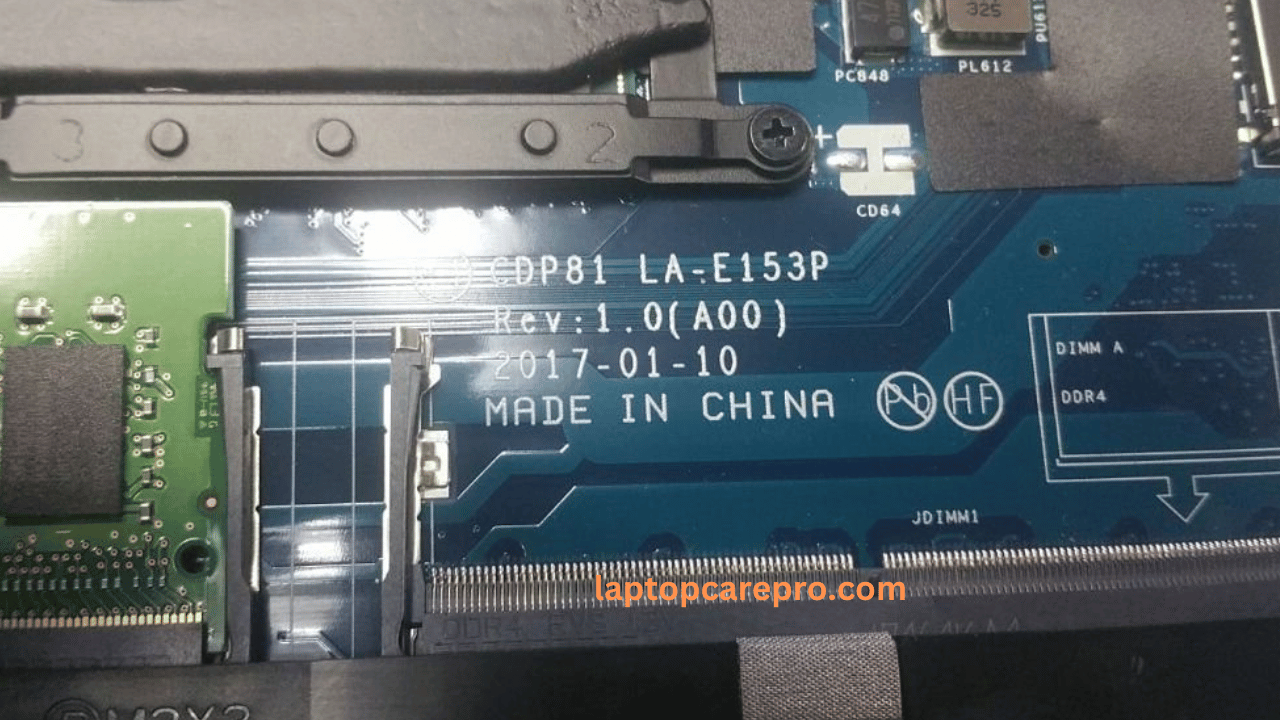Introduction Dell 3520
The Basic Input/Output System (BIOS) is a critical software component embedded into a computer’s motherboard. It initiates hardware initialization during the booting process and provides runtime services for operating systems and programs. The Dell Precision 3520, a high-performance workstation, utilizes the CDP81 LA-E153P BIOS version, ensuring seamless hardware compatibility and enhanced security features. For users, understanding how to manage and troubleshoot various BIOS configurations is essential for maximizing the performance and longevity of their device.
The Dell Precision 3520’s BIOS, identified by the CDP81 LA-E153P code, is specifically designed to support the hardware architecture of this model. It includes settings for adjusting memory configurations, boot sequence, peripheral device settings, and security options like passwords and encryption settings. For general users, familiarizing themselves with these settings can be crucial, especially when attempting to optimize their system’s performance or troubleshoot hardware-related issues.
Users may encounter several BIOS-related issues that can affect their Dell Precision 3520’s performance. These include problems during the boot process, recognizing hardware devices, or security settings hindrances. Solutions to these issues often involve entering the BIOS setup utility, updating the BIOS to the latest version, or resetting the BIOS settings to default.To address or modify BIOS settings, users need to enter the BIOS setup utility. This is usually achieved by pressing a specific key (often F2 or Del) during the boot process. Once inside the BIOS setup, users can navigate through menus to adjust settings as needed. If the system is experiencing instability or boot issues, resetting the BIOS settings to their default configuration can often resolve these problems. This option is typically found within the BIOS setup menu. However, users should note that this will erase any customized settings.
The Dell Precision 3520 BIOS also includes features for advanced users, such as overclocking options and detailed hardware monitoring. While these features can offer performance enhancements, they require a deeper understanding of hardware management and should be used with caution.
Conclusion
The Dell Precision 3520’s BIOS (CDP81 LA-E153P) plays a vital role in the overall performance and stability of the system. By understanding how to access, update, and manage BIOS settings, users can ensure their workstation operates efficiently and effectively. Whether dealing with common issues or exploring advanced features, the BIOS provides the foundational control necessary for hardware optimization and troubleshooting. Remember, when making any changes to the BIOS, it’s crucial to proceed with caution and follow official guidelines to prevent unintended consequences.
Always remember to back up your existing BIOS chip to a USB or hard drive before copying the downloaded BIOS bin file onto the BIOS chip. Sometimes, changes in the machine’s states occur after programming the BIOS chip. Therefore, it’s advisable to backup to prevent any loss
Dell Precision 3520 BIOS Download









